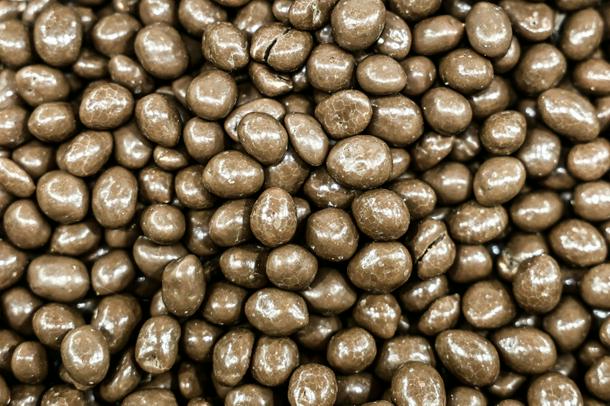
High prices of cocoa have spurred a surge in Liberia's cocoa exportation
Monrovia (AFP) - Some of the world’s best-known chocolate, from Mars to KitKat, is likely linked to deforestation in Liberia’s rainforest despite many brands’ claims of sustainability, according to research published by NGO Global Witness Tuesday.
Liberia is home to the largest remaining stretch of the Upper Guinean rainforest and multiple endangered species such as chimpanzees and forest elephants, according to the group.
Between 2021 and 2024 Liberia lost some 250,000 hectares (618,000 acres) of forest in the country’s largest cocoa producing counties, known as the “cocoa belt”, it said.
High prices of cocoa combined with crop failure in neighbouring cocoa-producing nations have spurred a surge in Liberia’s cocoa exportation and an expansion of farms.
Cocoa exporters rely heavily on rural traders in the region who buy indiscriminately, including deforestation-linked beans, the report said.
Companies then mix “traceable, certified cocoa with untraceable beans” under a certification program that allows them to call such chocolate sustainable, according to Global Witness.
The study said its research “implicates corporate giants including Hershey, Mondelez (Cadbury), Nestle, Unilever and Mars”.
“Big brands are buying untraceable bulk cocoa that hides a massive deforestation footprint”, Global Witness investigator Charlie Hammans said.
The report comes with the EU parliament posed to vote on pushing back the rollout of a law banning imports of products driving deforestation, to the end of 2026.
The law would “require companies selling in Europe to prove that products like chocolate are fully traceable and therefore free from deforestation”, Global Witness said.
Global Witness said it analysed customs data showing all cocoa exports from Liberia by cargo ship in the last three years.
It additionally used tree cover loss data for Bong, Nimba and Lofa Counties to arrive at the amount of forest land lost in the cocoa belt.
In addition to cocoa, Global Witness said small-scale agriculture, mining, palm oil and rubber production are “also likely to be significant contributors to forest loss”.